See a 400-Year-Old Book Made Entirely from Feathers
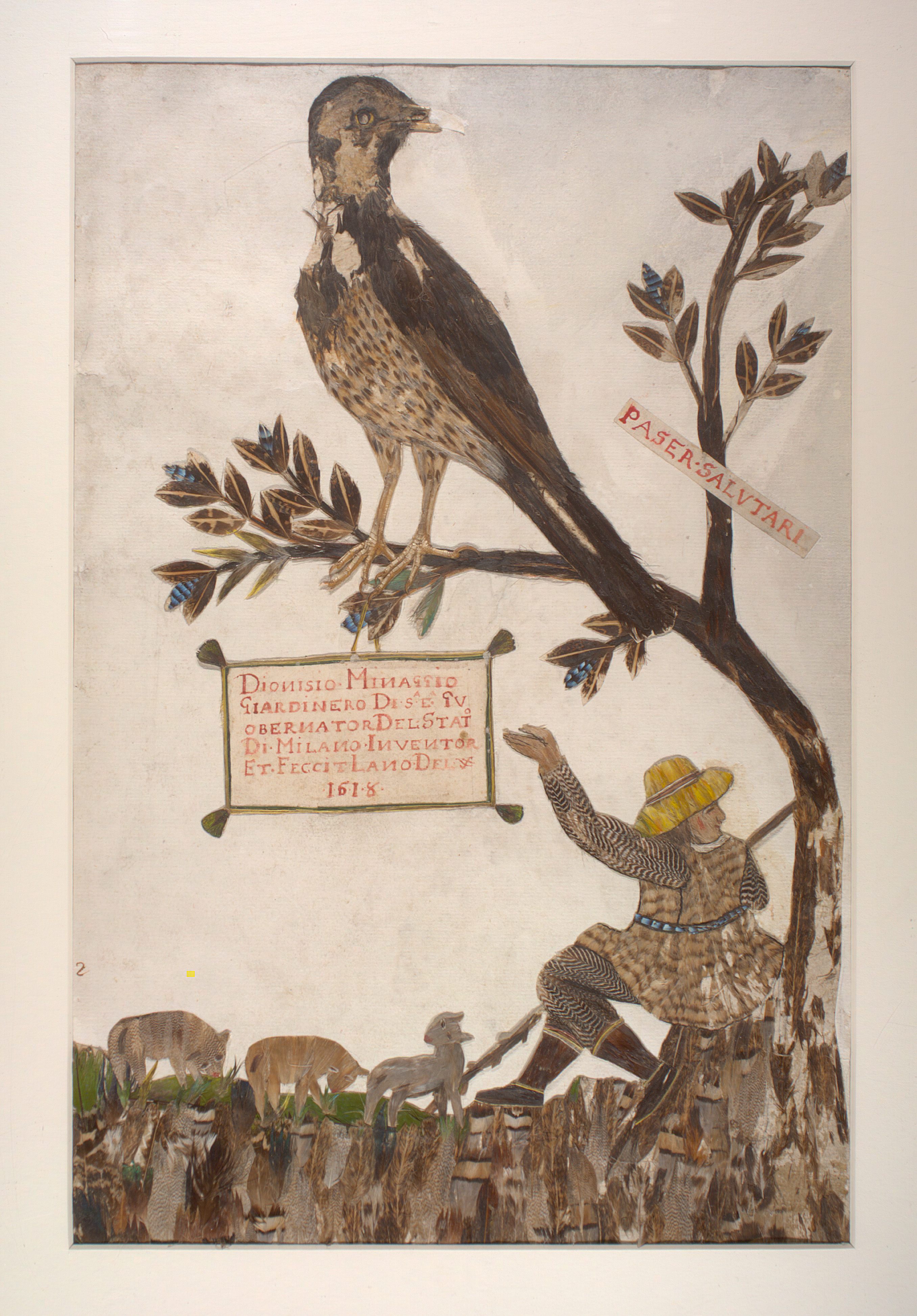
The title page of The Feather Book. The banner hanging from the branch reads: ‘Dionisio Minaggio, gardener to His Excellency the Governor of Milan was the creator, and he made [this book] in the year 1618’. (All Photos: Dionisio Minaggio, The Feather Book, Milan, c.1618, Courtesy Rare Books and Special Collections, McGill University Library)
In 1618, Dionisio Minaggio, Chief Gardener of the State of Milan, created a series of pictures. They were images of birds and scenes from the era: hunters, tradesmen, musicians and actors from the Commedia Dell’Arte. The difference was that these pictures were made of feathers, along with some supplementary bird parts: skin, beak and feet. In total, there were 156 images, which were bound into a book: The Feather Book, or Il Bestario Barocco (The Baroque Bestiary).
While the book mostly shows the birds of the Lombardy region, some of the scenes are familiar to us today: one depicts a bloody patient enduring a 17th-century dentist. Another shows a man waiting patiently for his dog to finish pooping. It’s not clear what prompted Minaggio to create the feather book; some have speculated that it was to occupy his staff during winter and use up the feathers from the kitchen. Others say the regional governor may have commissioned it.
After traveling from Italy to the collection of an English judge named Taylor White in the 18th century, it is now held at the McGill University Library in Montreal. Below, a selection of the best birds, hunters, musicians and, yes, dentists from The Feather Book.
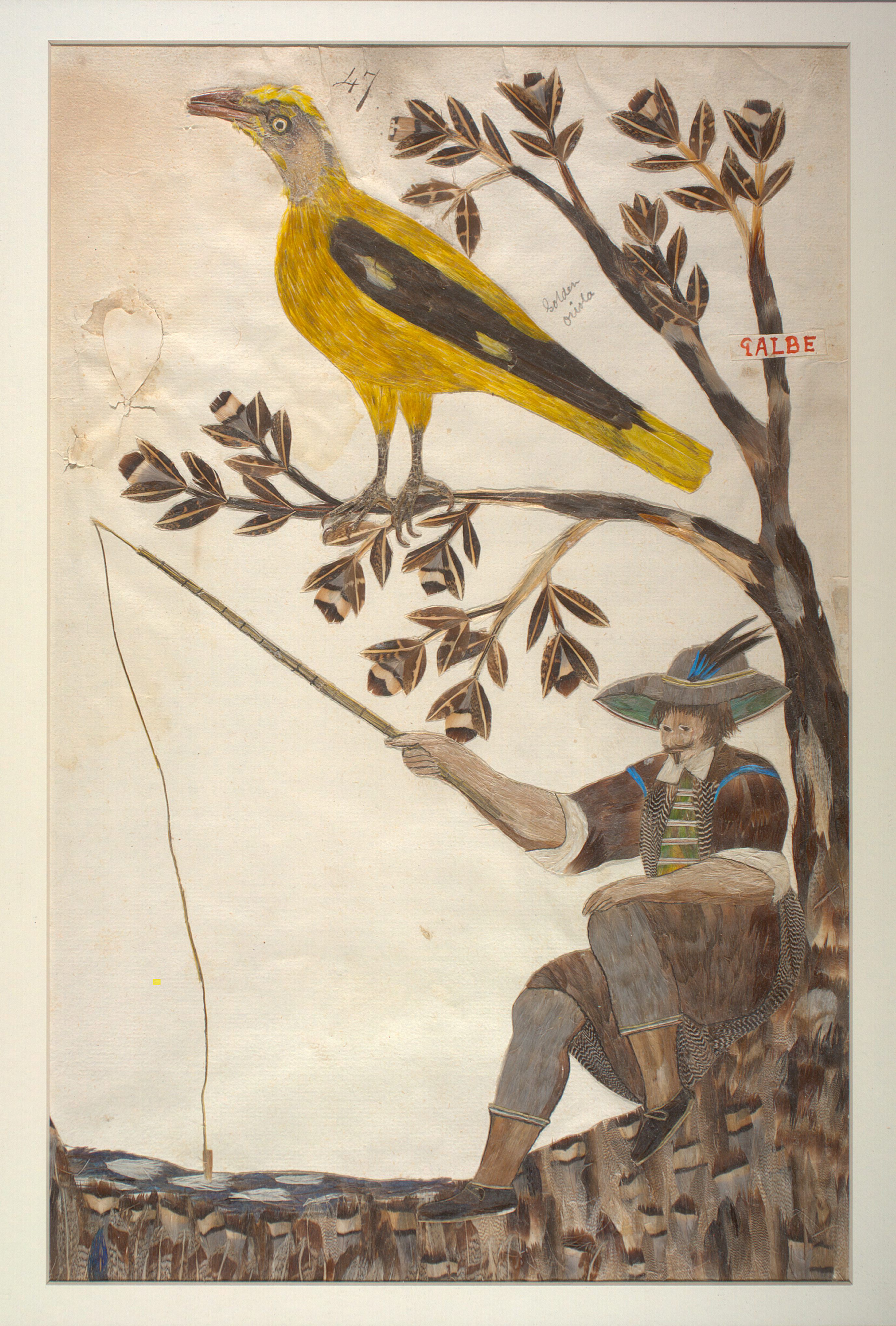
Minaggio 47: A Golden Oriole in a tree overlooks a man fishing with a pole.
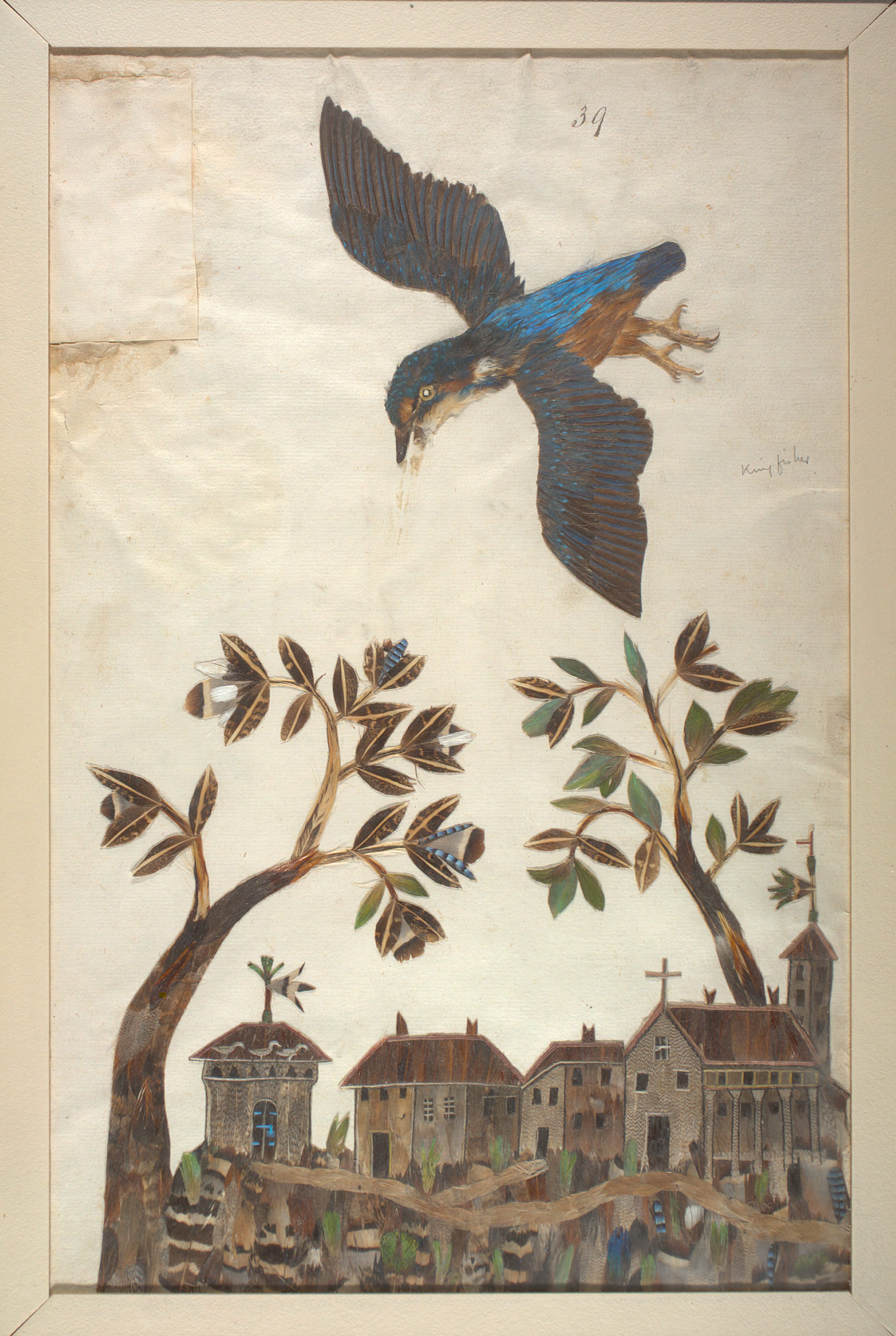
Minaggio 39: A Kingfisher flies over a village. This is one of two examples that show a bird flying.
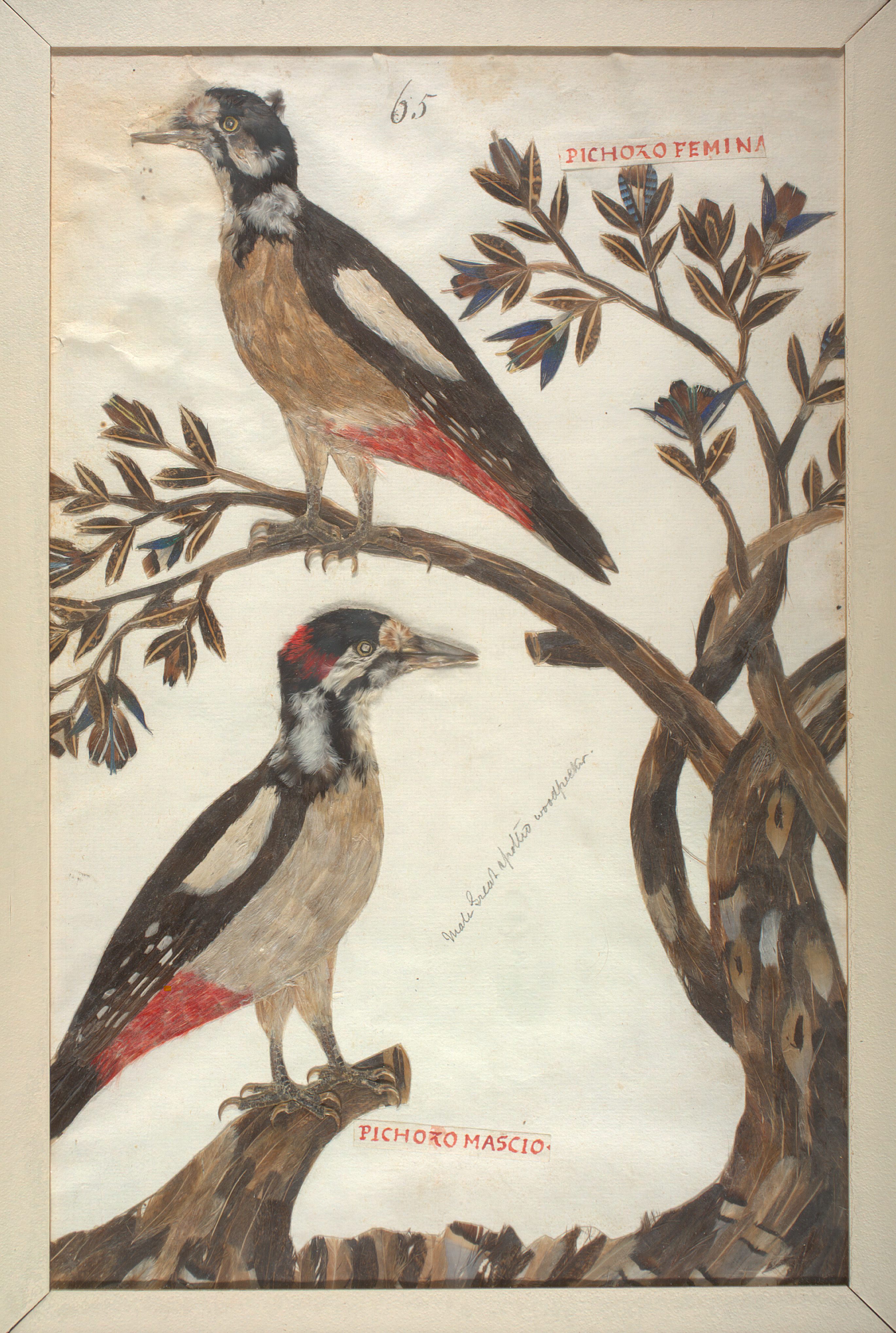
Minaggio 65: Two Great Spotted Woodpeckers sit in a tree.
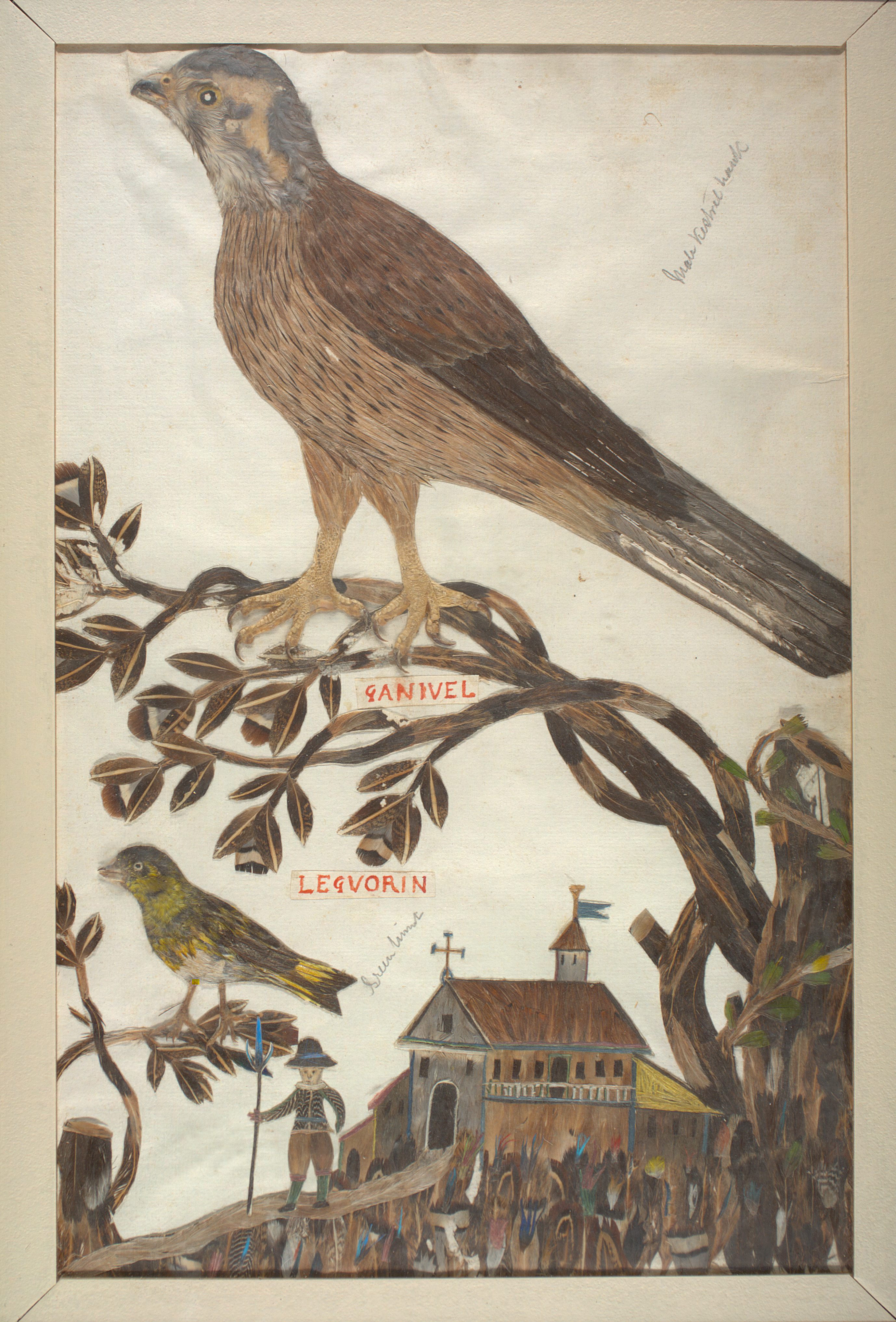
Minaggio 116: A male Kestrel sits above a Siskin. In the background, a soldiers stands guard on a road leading to a church.

Minaggio 65: A pair of Greater Spotted Woodpeckers.
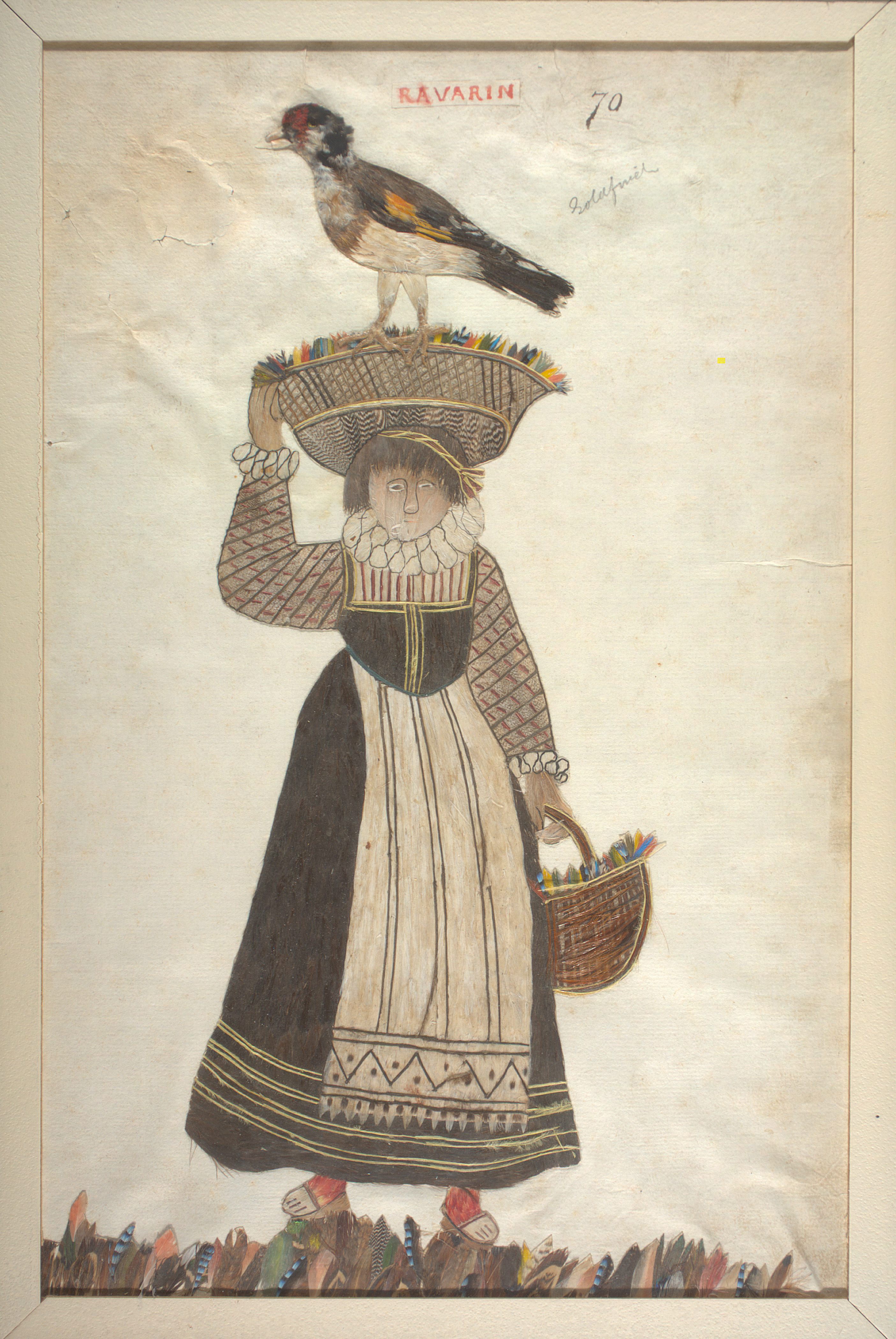
Minaggio 70: A woman carries a basket in her right hand and balances another, on which a Goldfinch is perched, on her head.
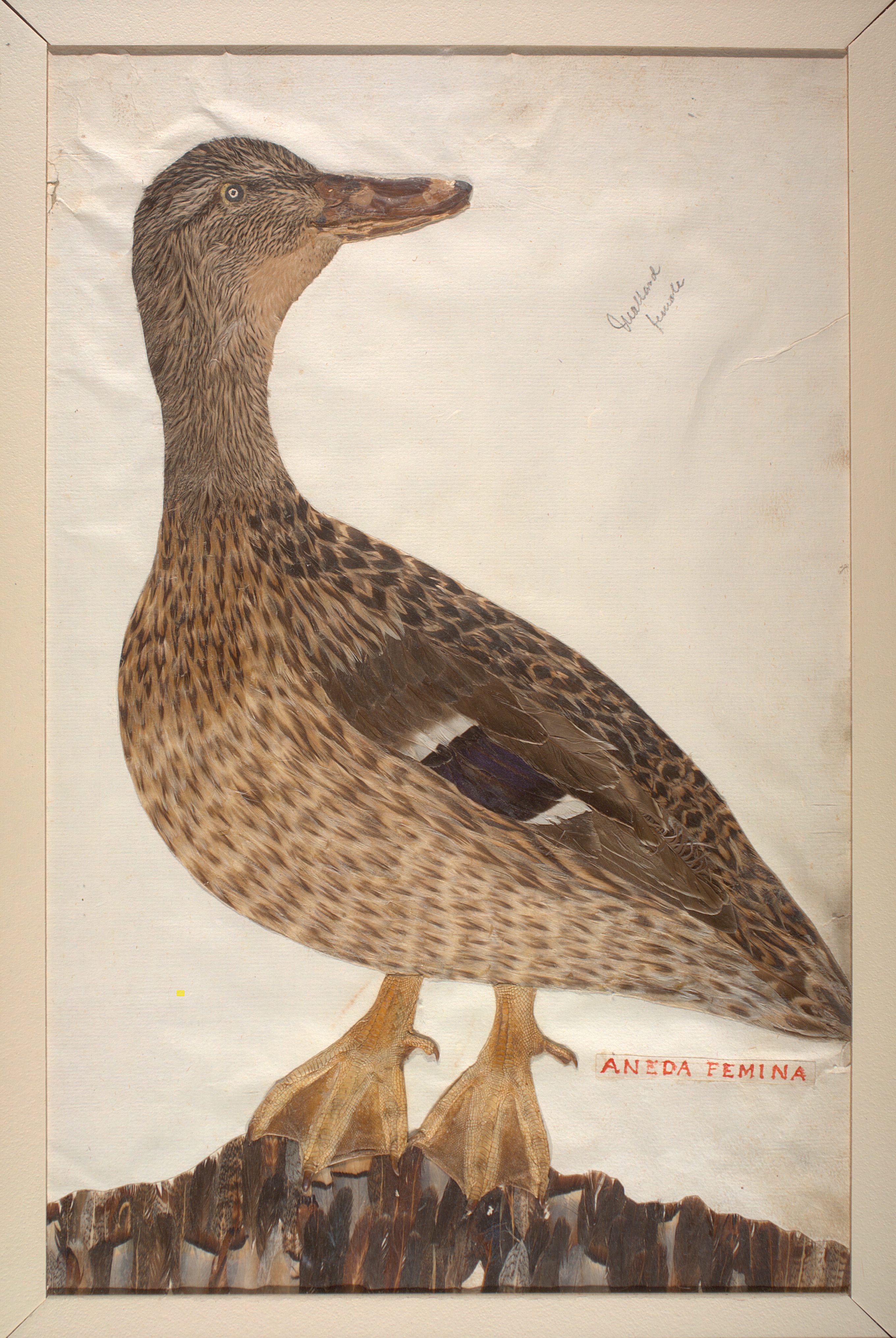
Minaggio 119: a female Mallard, or anas platyrhynchos.
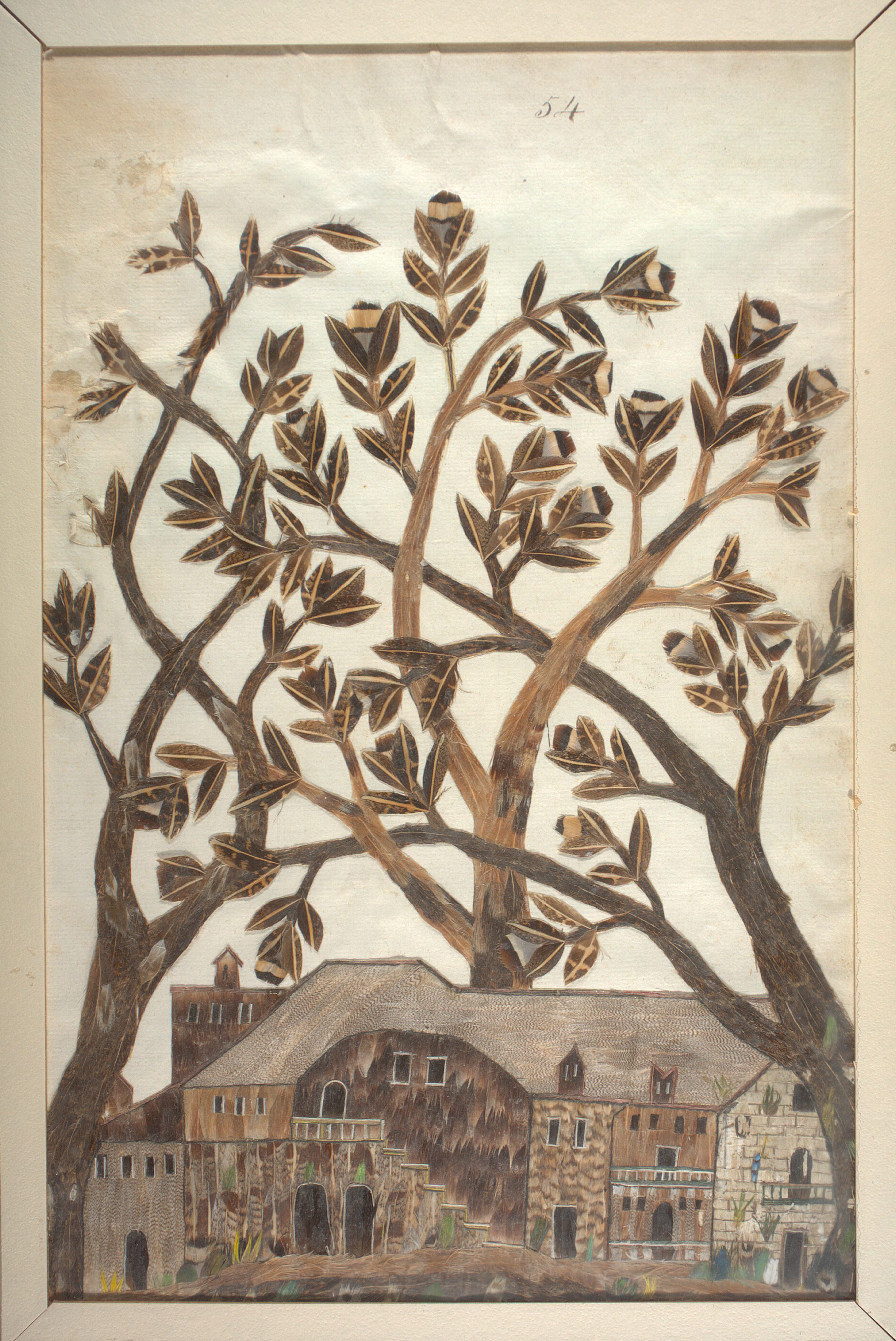
Minaggio 54: A landscape with buildings under three entwined trees, and the only picture in The Feather Book without birds or people.
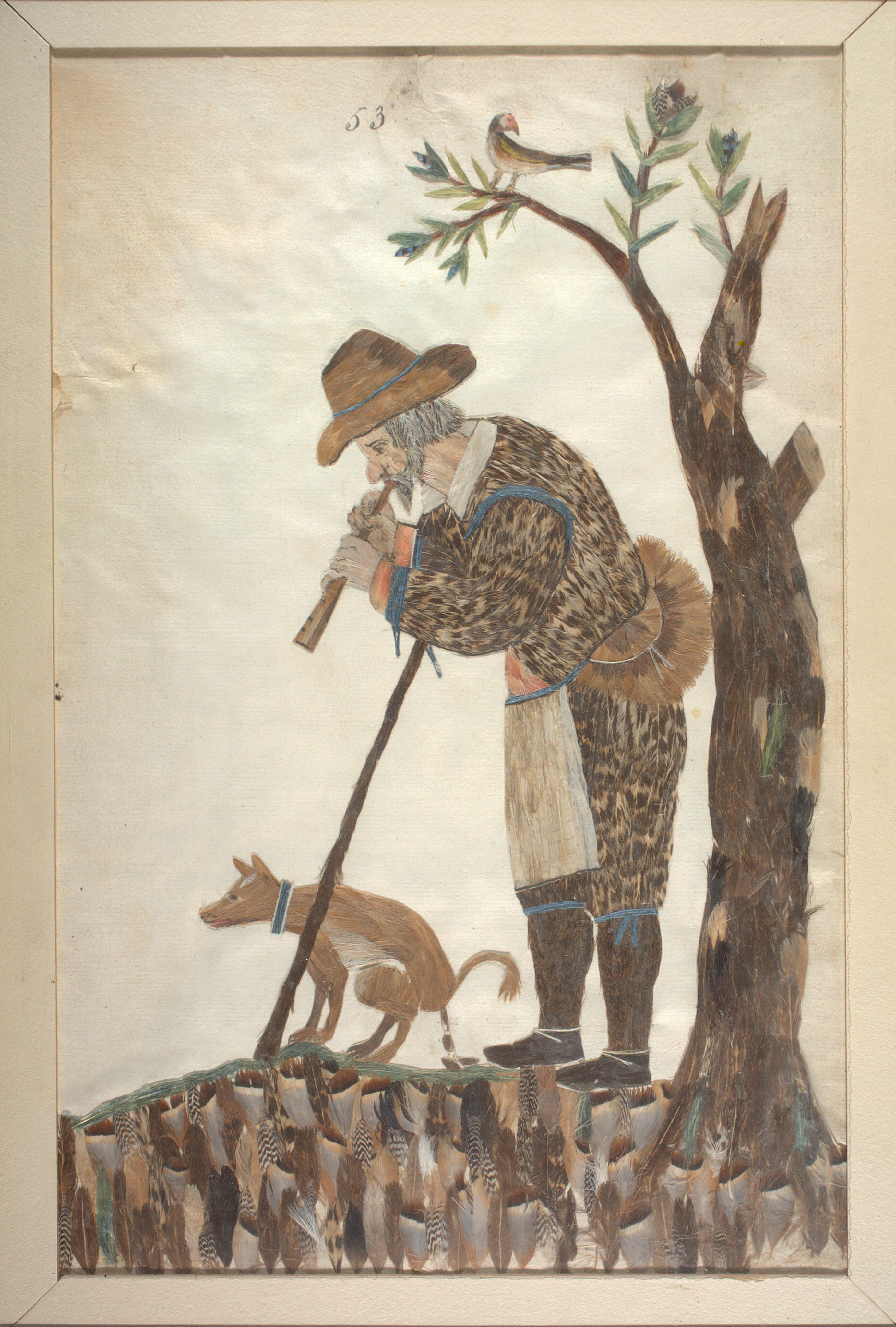
Minaggio 53: The apron and brush attached around his waist indicate this may be a chimney sweep. He plays the flute while waiting for his dog to finish defecating. There is a small finch perched on the top of the tree.
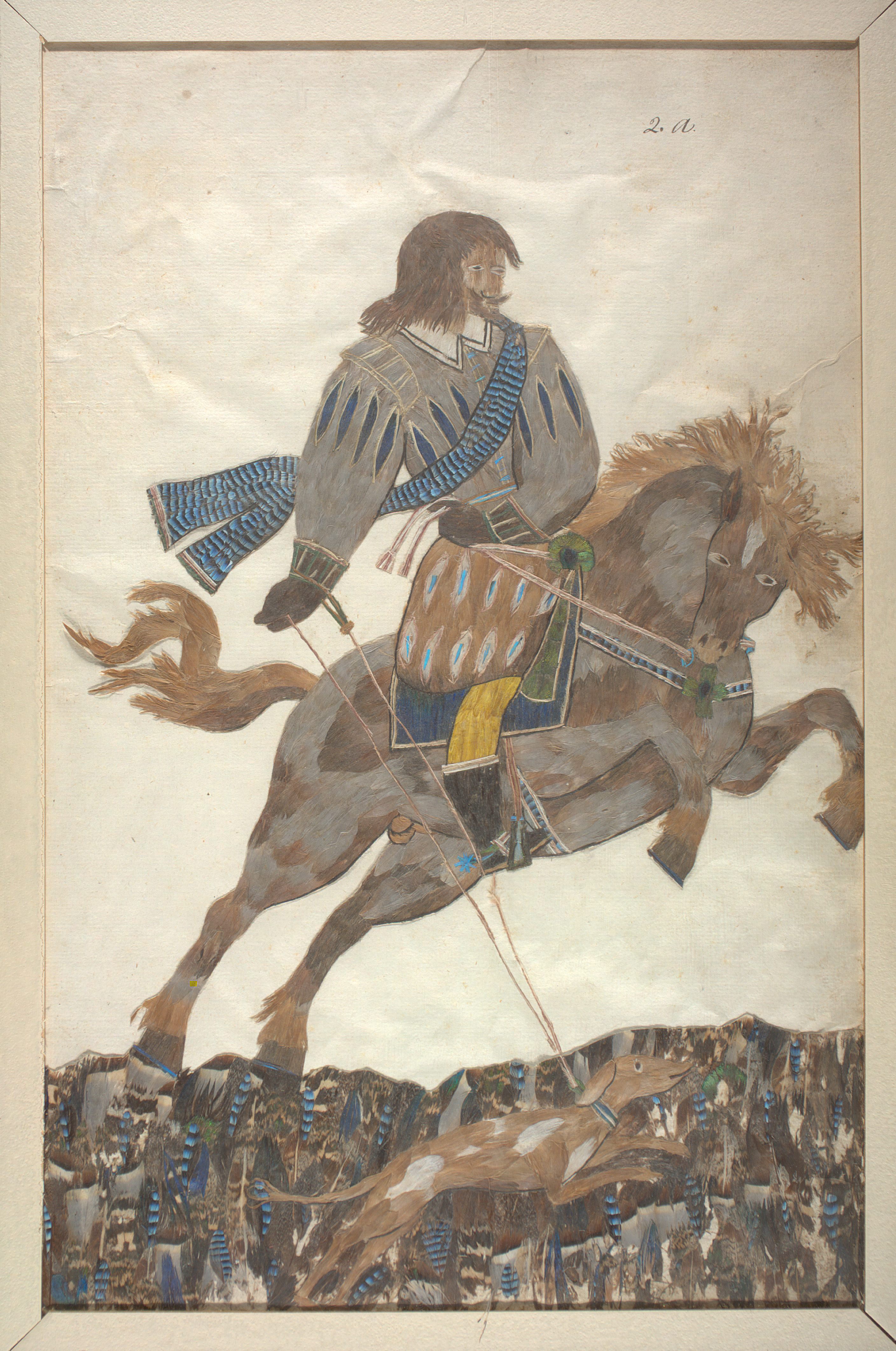
Minaggio 2a: A gentleman on a prancing horse and holding a hunting dog on a long lead.
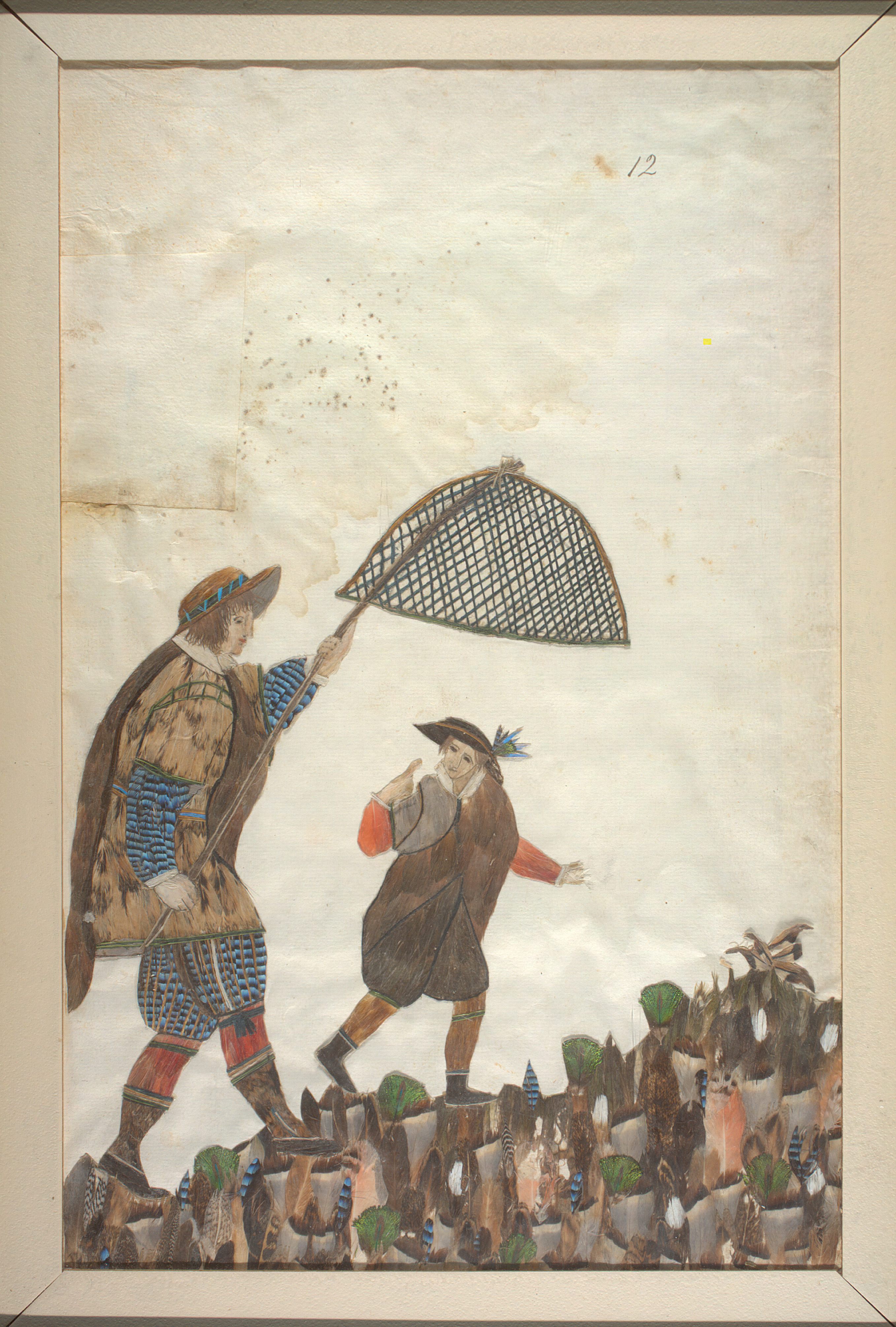
Minaggio 12: A man and a boy with a net walking towards a covey of five birds on the ground to the right.
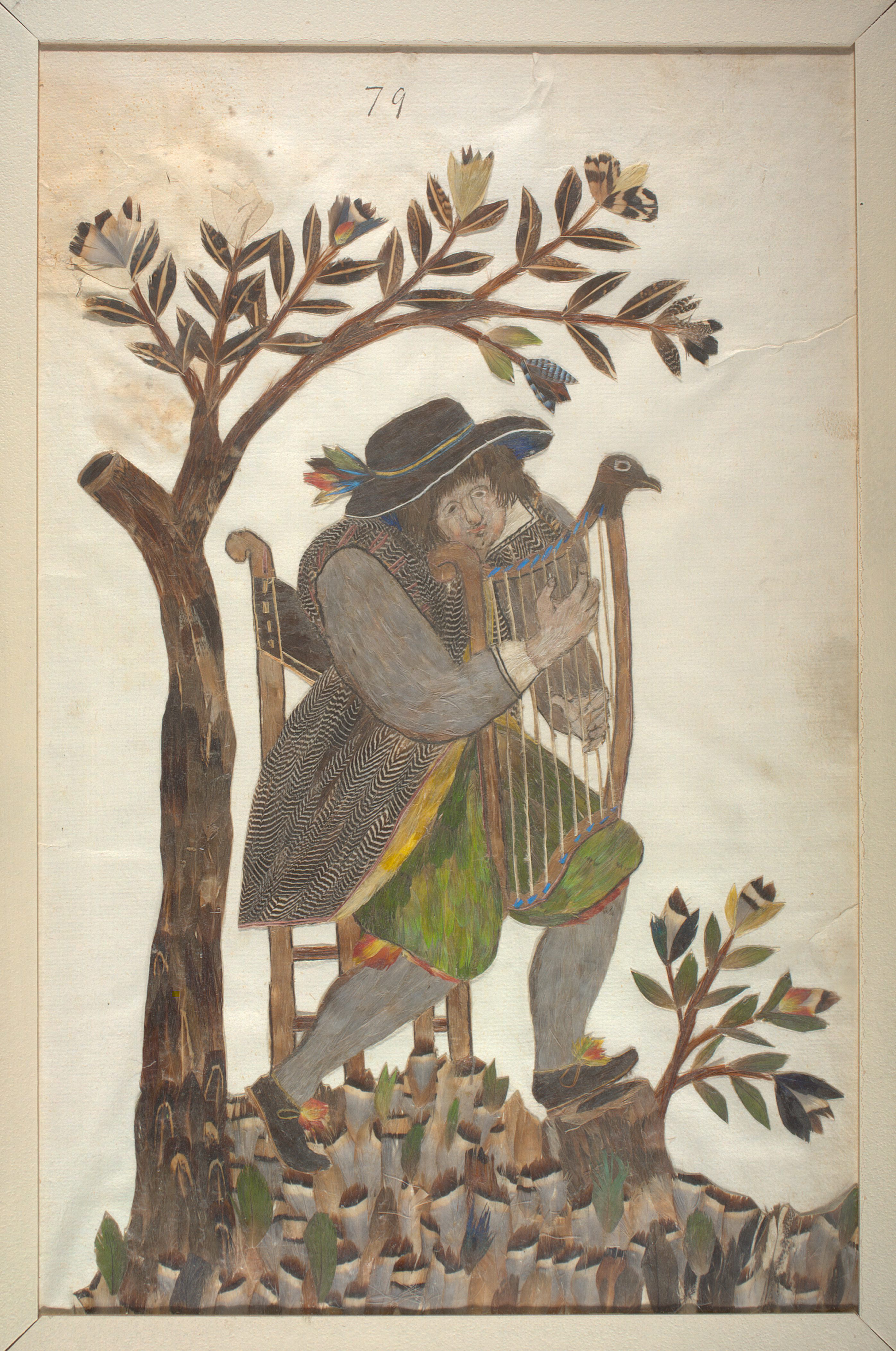
Minaggio 79: A man, seated under a tree, plays a harp carved into the shape of a bird’s head.
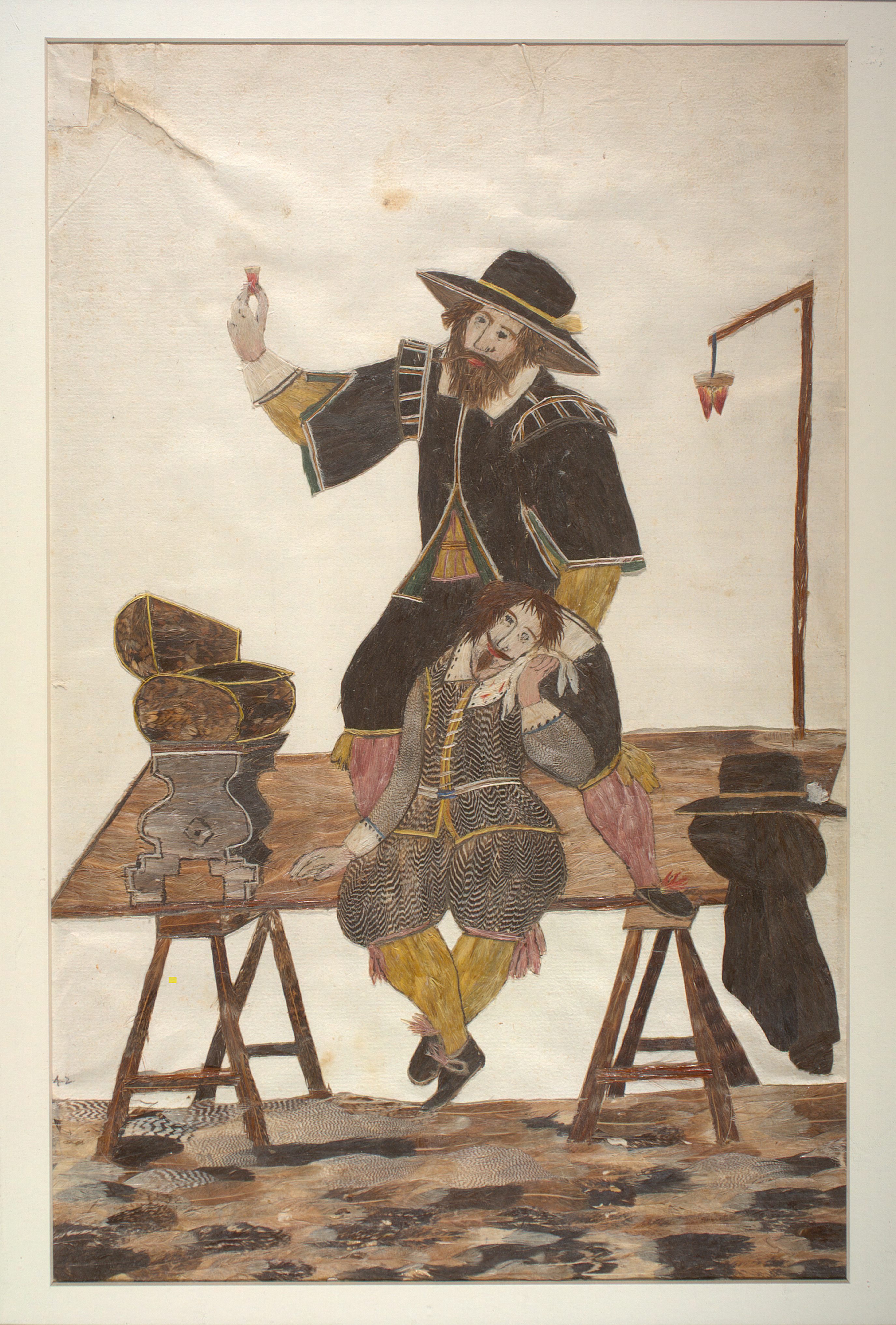
Minaggio 142: A tooth-puller stands on a table between an open coffer and his professional insignia - tooth hanging from a pole. He holds up the tooth he has just extracted from a suffering patient, who sits holding a blood-stained cloth to his face.
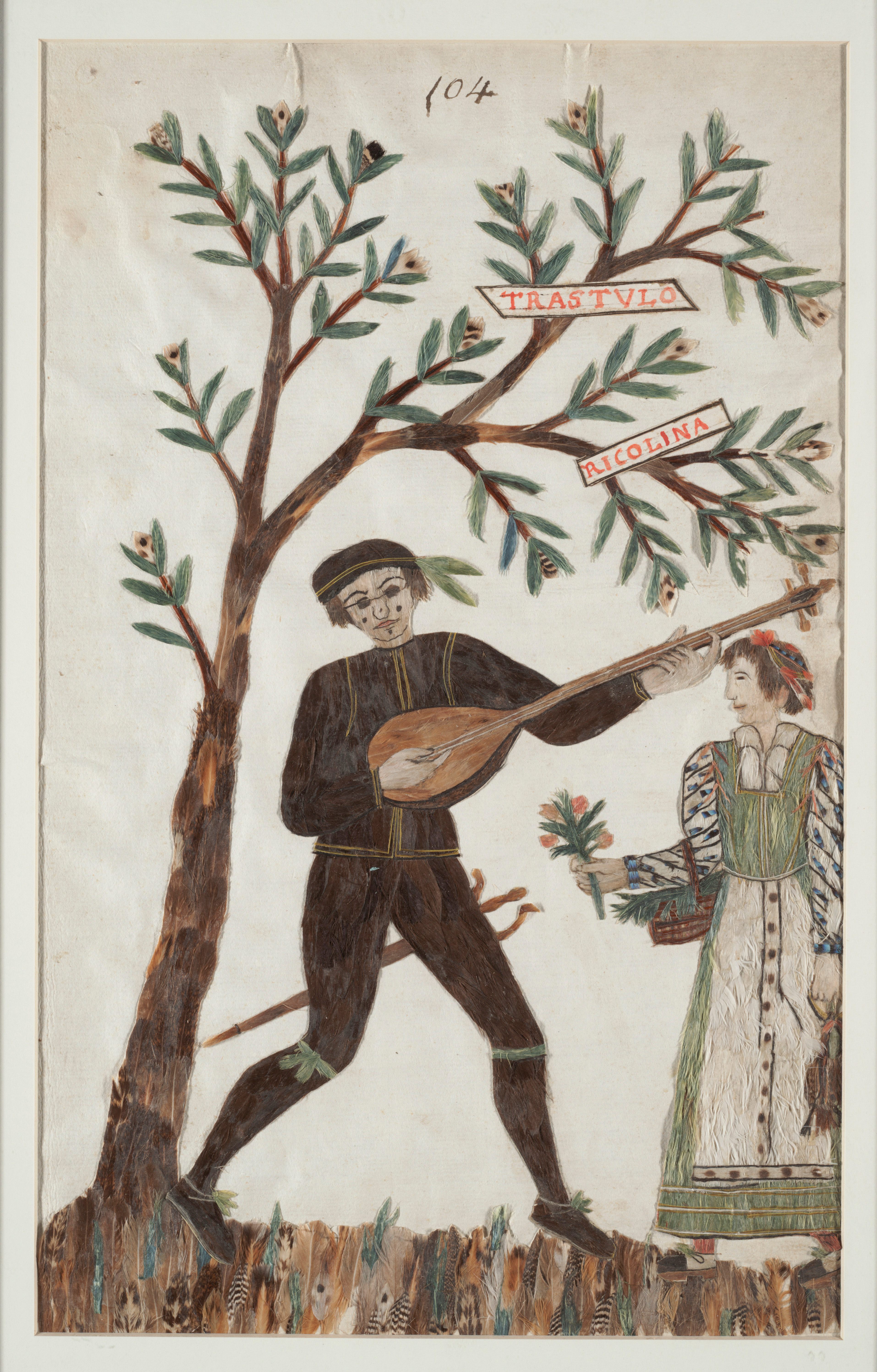
Minaggio 104: from the Commedia dell’Arte, the young Trastulo, here playing the mandolin, represents one of many clown-like characters.




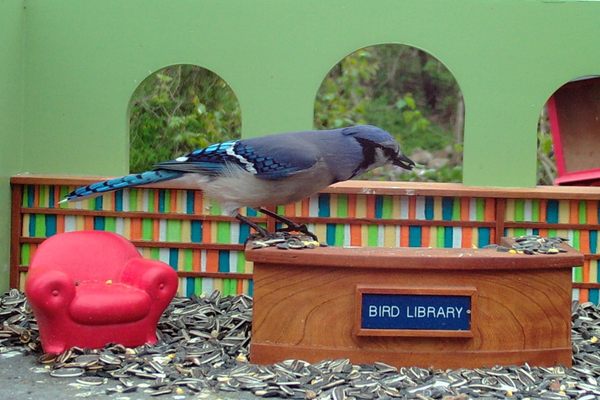













Follow us on Twitter to get the latest on the world's hidden wonders.
Like us on Facebook to get the latest on the world's hidden wonders.
Follow us on Twitter Like us on Facebook